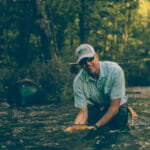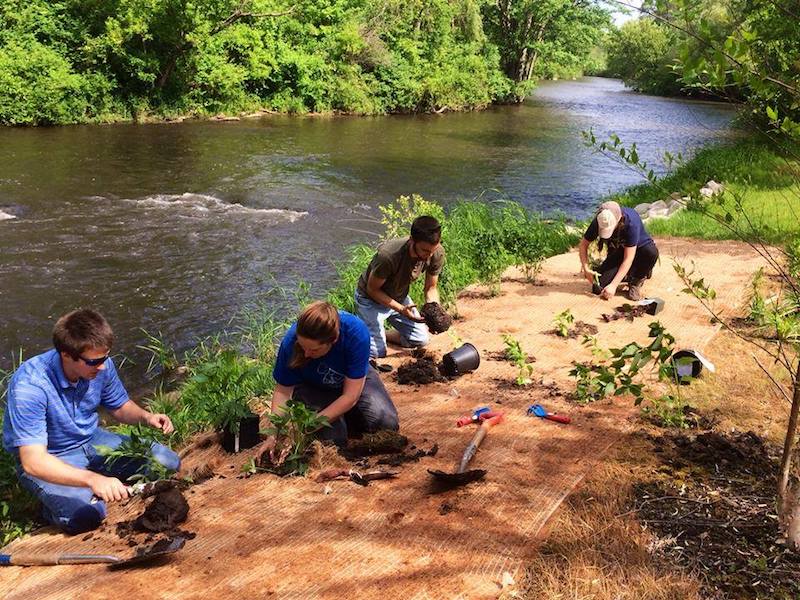Trout Unlimited has received funding from the U.S. Forest Service, through the Great Lakes Restoration Initiative, to plant nearly 17,000 trees along coldwater streams in Michigan.
The project, “Reducing Runoff in the Rogue River Watershed,” aims to address stormwater runoff that pollutes, erodes, and warms the important western Michigan trout fishery by planting trees at six critical sites throughout the watershed.
The sites, located in Rockford, Cedar Springs, Sparta and Plainfield Township, are both public and private and represent a diverse network of community partners, stakeholders, agencies and residents.
The Rogue River is a major tributary of the Grand River and features an outstanding combination of cold, cool and warm water, which support great biological diversity.
However, the Rogue River watershed is being impacted by common urban issues like by sedimentation, degraded habitat, thermal pollution and high peak flows caused by increased imperviousness within developed areas of the watershed.
These issues are threatening critical coldwater species like trout that the local ecosystem and economy depend on.
This project is using a watershed-scale approach to target key coldwater resources to have the greatest impact in addressing stormwater runoff and considering climate change scenarios by selecting tree species that are expected to thrive in the area according to the projected climate modeling.
Planting trees along streams has a variety of important benefits to the watershed.
Trees will shade a stream, protecting it from warming temperatures in the summer. They drop leaves and woody debris which create habitat for fish and other wildlife, they help communities become resilient to climate change impacts and, most impressively, they have the ability to soak up and filter runoff to reduce the amount entering and polluting a stream.
In the first five years alone, the 16,823 trees planted through this project will result in 1.5 million gallons of water filtered.
Trout Unlimited is excited to begin this project and is thankful to the U.S. Forest Service for their support, as well as for the Great Lakes Restoration Initiative, which makes this project possible.
Since 2010, the Great Lakes Restoration Initiative has supported 4,700 projects in the Great Lakes region, including Trout Unlimited projects to address stormwater runoff, improve stream connectivity and restore instream habitat.
“Trout Unlimited relies on the Great Lakes Restoration Initiative to work with local communities and other partners to complete projects that strengthen trout, salmon and steelhead fisheries, and that benefit local economies,” said Keith Curley, Trout Unlimited’s vice president for Eastern Conservation.
The total project cost is $124,665 with the U.S. Forest Service providing $99,691 of that funding and the remaining being contributed by local partners and volunteers.
This project is a prime example of the success of the many collaborative, regional partnerships in which Trout Unlimited participates.
This institution is an equal opportunity employer



